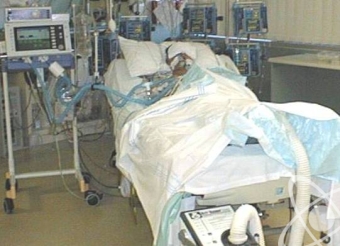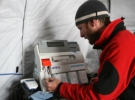What is intensive care?
Intensive care, also known as critical care, or intensive therapy, originated approximately 50 years ago as a response to a polio epidemic in Copenhagen. It has developed into a speciality that provides advanced medical and nursing support for patients who are critically ill, for example, have had accidents, undergone major surgery, or are suffering from infections. Approximately 2% to 5% of acute hospital beds are dedicated to intensive care in the United Kingdom.
Patients enter an intensive care unit if they have significant failure of one of their organs. This is often the lungs, requiring them to be placed on a mechanical breathing machine (ventilator), but may also be the kidneys, liver or heart. Failure of any one of these organs can lead to patients suffering from low oxygen levels in the body (hypoxia). The intensive care team spend a lot of effort trying to support these patients failing organs. Many of these treatments can cause harm as well as good. All of these support methods can directly or indirectly improve oxygen levels in the body.
It costs between ?1500 and ?2000 pounds a day to treat a patient in an intensive care unit in the UK, and despite this, 20% of those admitted to these units die, with a further 10% dying before they leave hospital. Of those that survive to go home, a small number suffer long term problems as a result of the treatment that they have received. They may be dependent on oxygen long term, or have swallowing or speech problems as a result of having a breathing tube inserted into the throat. Others suffer from nightmares or flashbacks as a result of the sedative drugs given to them to ensure the tolerate the ventilator.
Caudwell Xtreme Everest are striving to understand how the body responds to low oxygen levels better, so that in the long term there is the opportunity to develop treatments to reduce death rates and improve long term quality of life of intensive care patients. |



